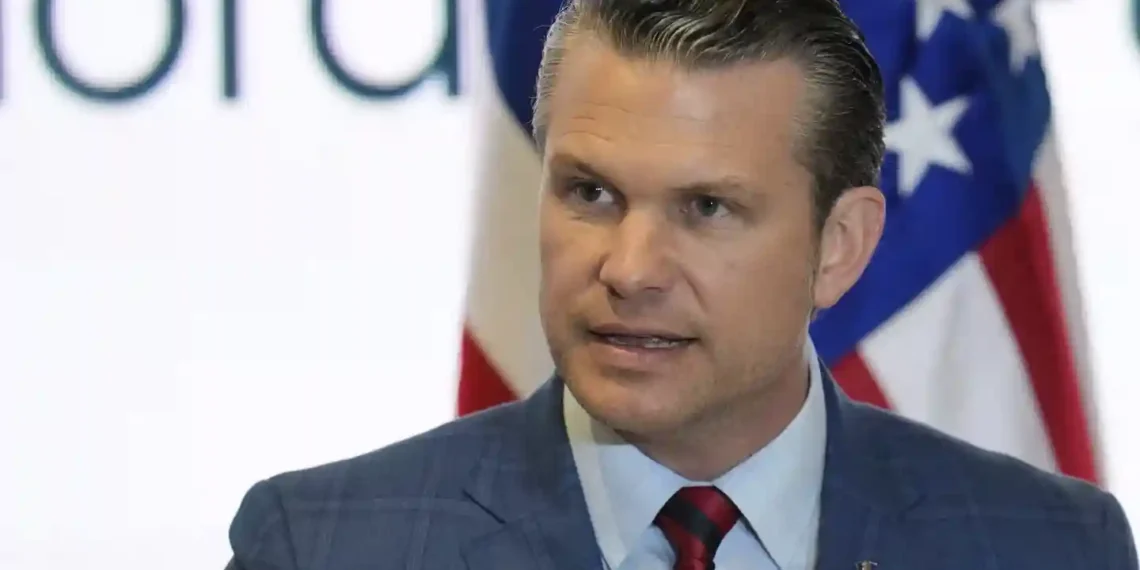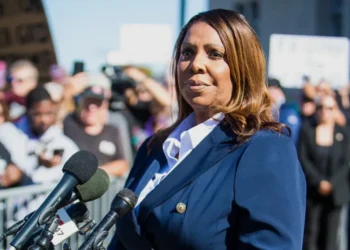Second Secret Signal Chat Revealed: Hegseth Shared Yemen Strike Details With Family
Fresh scrutiny hits Defense Secretary Pete Hegseth as another unauthorized Signal chat surfaces—this time including his wife and brother.
WASHINGTON — Defense Secretary Pete Hegseth is facing intensified backlash after The New York Times revealed he used a second private Signal chat to share sensitive military strike details—this one involving not just government officials, but his own family.
According to sources who spoke anonymously due to the sensitivity of the matter, the chat was titled “Defense ‘ Team Huddle” and included 13 participants, among them Hegseth’s wife, Jennifer (a former Fox News producer), and his brother Phil, a senior adviser and liaison to the Department of Homeland Security. Both have accompanied Hegseth on official trips and sat in on top-level meetings.
The group reportedly discussed the March airstrike against Iran-backed Houthi militants in Yemen, echoing sensitive information previously shared in a separate Signal chat with senior Trump administration officials.
The use of Signal—a secure but unauthorized app for classified military communications—has sparked major concerns. This second chat reportedly contained the same warplane launch times and operational details as the first group message that included members of Trump’s Cabinet and even a journalist.
The Atlantic previously exposed the original Signal chat, which was created by National Security Adviser Mike Waltz. It included specific strike timelines and weapons systems—details that, experts say, would typically be considered classified and could compromise mission safety.
The revelations have triggered a political firestorm.
“The details keep coming out. We keep learning how Pete Hegseth put lives at risk. But Trump is still too weak to fire him,”
— Senate Majority Leader Chuck Schumer posted on X.
Despite mounting criticism, President Trump has yet to take action against Hegseth or any of the officials involved.
The Defense Department’s acting inspector general is currently investigating the matter. The probe was requested by the Senate Armed Services Committee, led by Chairman Roger Wicker (R-MS) and ranking member Jack Reed (D-RI).
Meanwhile, the Pentagon has seen a wave of departures amid the fallout:
- Dan Caldwell, Hegseth’s close aide and his designated Signal point person,
- Colin Carroll, chief of staff to Deputy Defense Secretary Stephen Feinberg,
- Darin Selnick, Hegseth’s deputy chief of staff,
All three were escorted out of the Pentagon last week, though they claim they’ve been left in the dark about the reason for their dismissal.
In a joint statement posted to X, they said they “still have not been told what exactly we were investigated for… or if there was even a real investigation.”
In a separate but related move, former Pentagon spokesman John Ullyot also resigned last week, though officials say his departure was not tied to the leaks investigation.
Hegseth has defended his actions, insisting no classified information was shared. However, multiple former defense officials have said that sharing operational launch times ahead of a strike is unquestionably classified—and doing so could endanger pilots and missions.
As pressure mounts and the investigation unfolds, questions remain not only about Hegseth’s judgment, but about broader national security protocols within the Trump administration.
This article was rewritten by JournosNews.com based on verified reporting from trusted sources. The content has been independently reviewed, fact-checked, and edited for accuracy, neutrality, tone, and global readability in accordance with Google News and AdSense standards.
All opinions, quotes, or statements from contributors, experts, or sourced organizations do not necessarily reflect the views of JournosNews.com. JournosNews.com maintains full editorial independence from any external funders, sponsors, or organizations.
Stay informed with JournosNews.com — your trusted source for verified global reporting and in-depth analysis. Follow us on Google News, BlueSky, and X for real-time updates.














